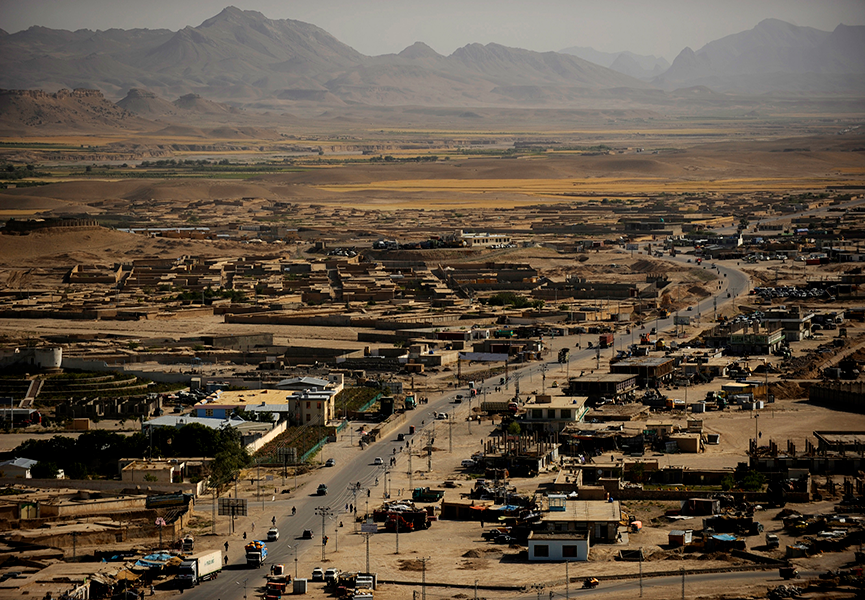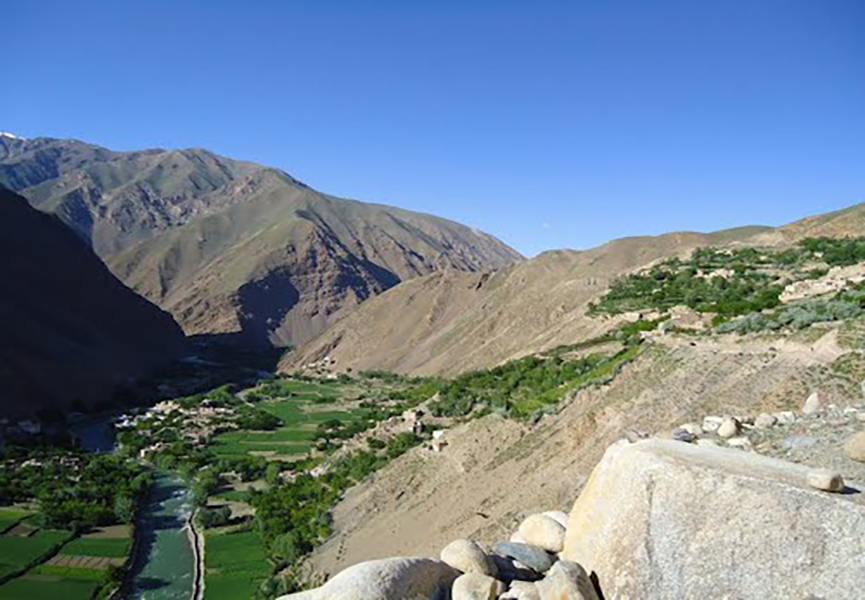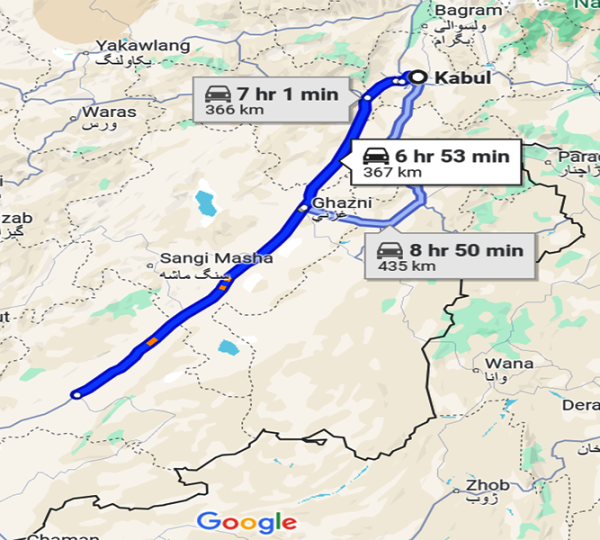Zabul
Located in southern Afghanistan, Zabul is a rugged, mountainous province known for its vast desert plains, high plateaus, and strategic location along the Kandahar-Kabul Highway. Its geography is defined by the high-altitude Sulaiman Mountains, with a mix of arid valleys and small, scattered villages. Zabul is predominantly inhabited by Pashtuns, with a strong tribal culture and a traditional way of life that centers on livestock, farming, and trade. Historically, the province has been a significant transit route between Kabul and Kandahar, which has also made it a point of strategic interest in recent conflicts.
Cuisine and Specialties
- Kabuli Pulao: A fragrant rice dish topped with tender lamb, raisins, and carrots.
- Lamb Kebabs: Seasoned lamb kebabs are a favorite in Zabul, often grilled over an open flame and served with Afghan naan bread.
- Dairy Products: Milk, yogurt, and butter from locally raised livestock are common, as the province’s economy heavily relies on pastoralism.
- Fresh and Dried Fruits: Zabul’s pomegranates and almonds are popular, enjoyed fresh or dried, and often served with tea.
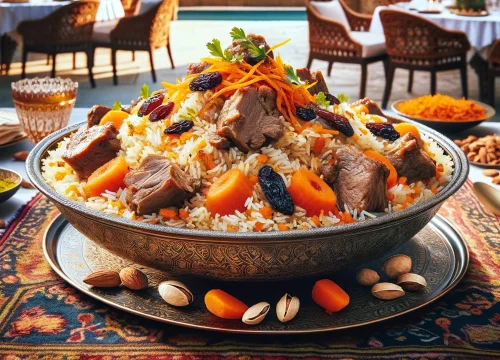
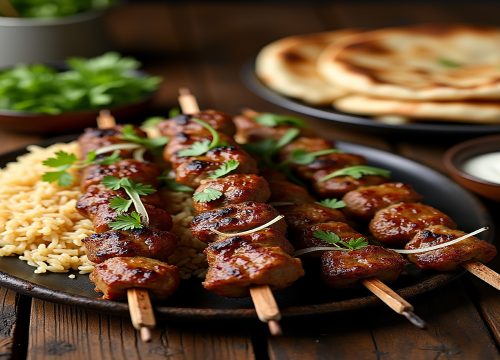
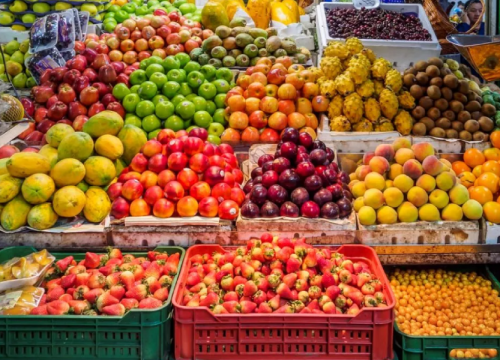

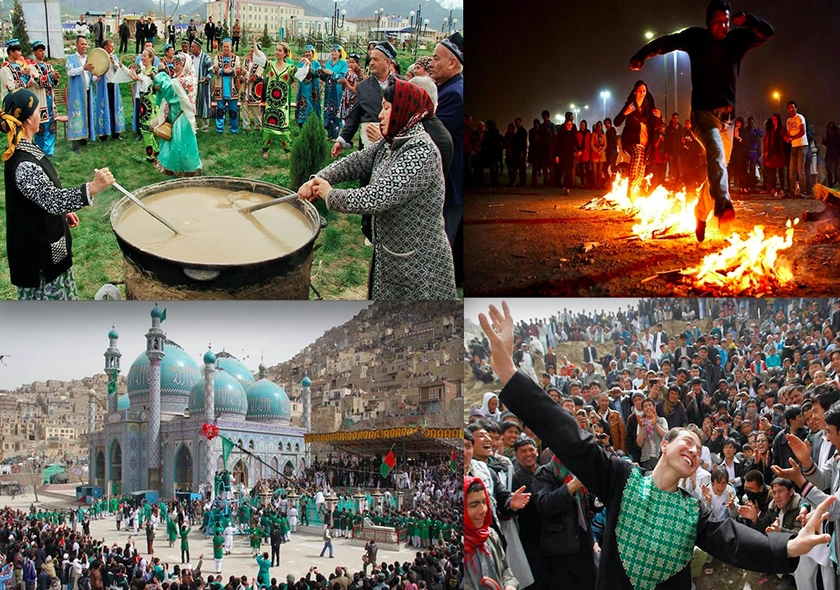
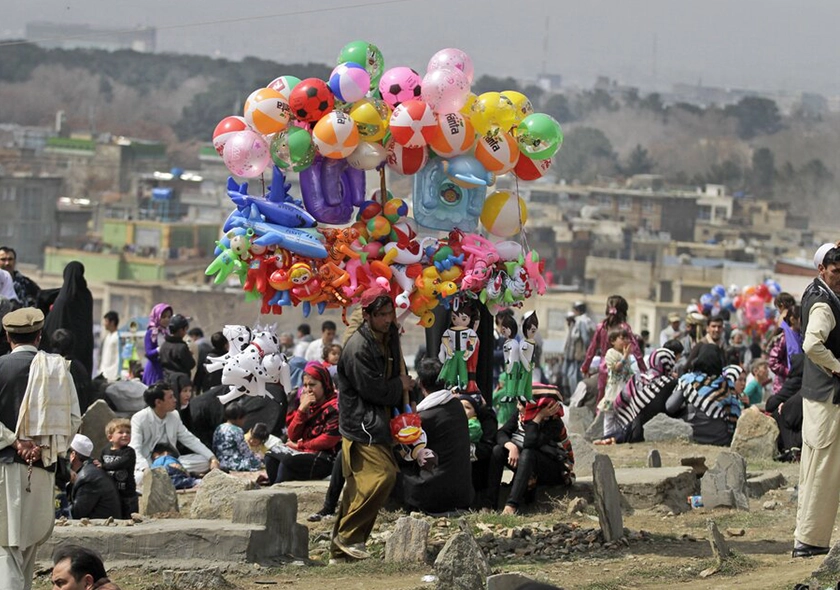
Festivals and Cultural Events
Zabul’s residents observe Eid al-Fitr and Eid al-Adha with family gatherings, communal prayers, and traditional feasts. Due to the province’s remote and rural nature, large public celebrations are rare, but locals keep cultural traditions alive through small gatherings, storytelling, and Pashto poetry. Tribal gatherings, called jirgas, also play an essential role in community life, allowing tribes to discuss and resolve issues while preserving cultural values. Zabul Province’s mountainous landscapes, traditional Pashtun culture, and historical significance make it a unique and resilient part of Afghanistan’s southern region. The province’s close-knit communities and strong tribal heritage continue to shape its identity amidst the challenges of its geography and climate.

